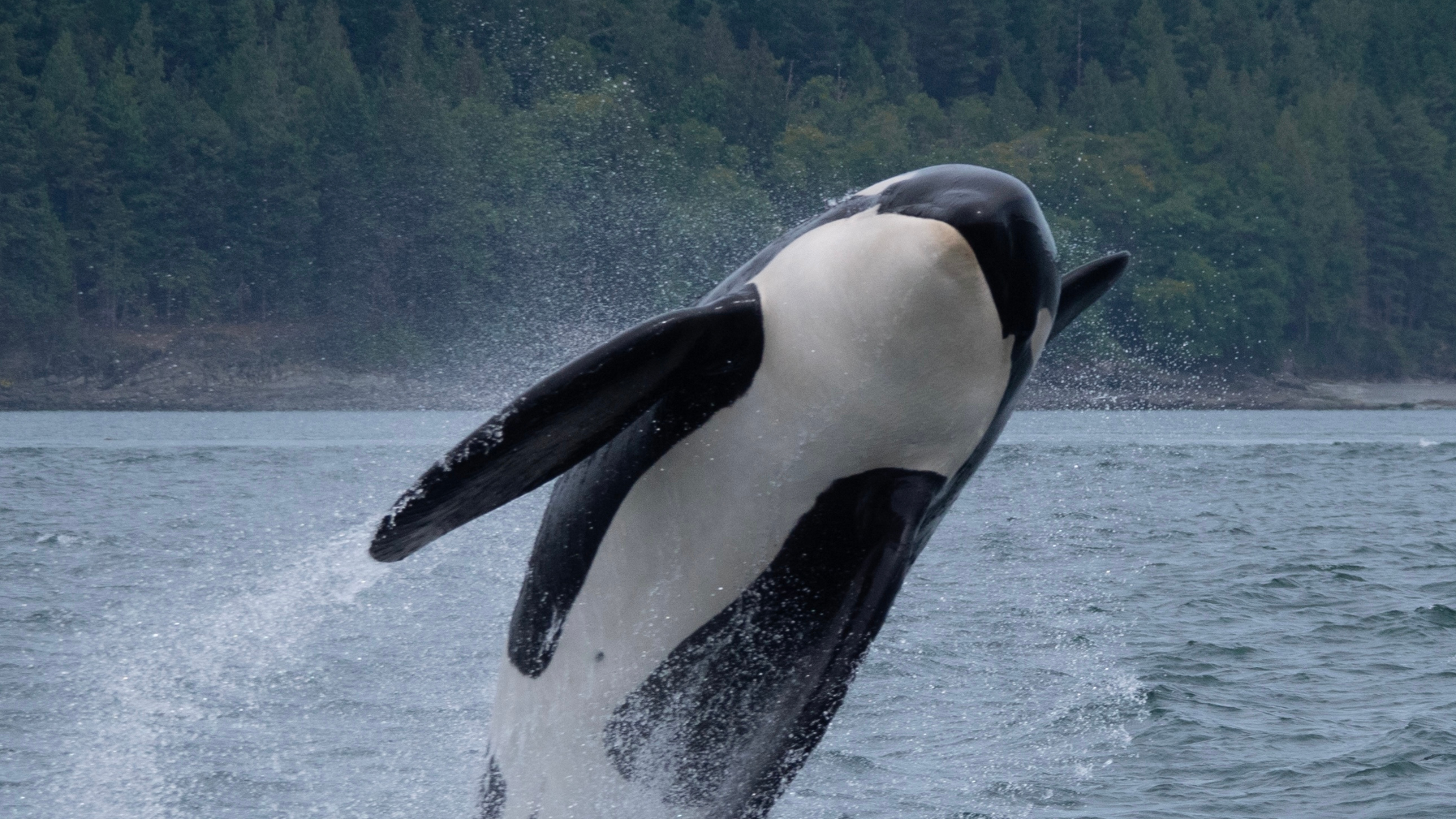
THE TRUTH ABOUT CETACEANS IN CAPTIVITY
PUBLISHED ON || JULY 1, 2022
THE TALE OF CAPTIVE WHALES, DOLPHINS AND PORPOISES
For some, the idea of watching dolphins leap in a sparkling blue tank or orcas splash visitors at an aquarium show is a simple afternoon of fun. When you dive deeper into the truth about cetaceans in captivity, however, the dark in unpleasant truth about how these sentient beings suffer will transform these displays into a mockery of animal rights.
Education is the first step in making any positive change. Many organizations around the world work hard to teach people about the unhealthy and unkind restrictions at aquariums and marine parks. Multiple countries have banned captive cetaceans completely. At SUVERIA, we have joined the fight to help whales, dolphins, and porpoises have the right to a life of natural freedom.
CAPTIVE CETACEANS BY THE NUMBERS
More than 3000 cetaceans are currently kept in captivity in countries all around the world. The most common species include dolphins with beluga whales and killer whales making up the bulk of the rest. At first glance, the number does not seem that high when considering all the different marine parks and aquariums that exist worldwide. However, when you factor in the knowledge that over 5000 have died in captivity in the last five decades, things start to add up differently.
REASONS FOR WHALE AND DOLPHIN CAPTIVITY
Why are so many cetaceans taken from their ocean homes and stuck in tanks that are too small for their natural habits and health? By far, the most common reason is profit. People who do not understand the conditions and consequences pay a lot of money to buy tickets to dolphin and orca shows. While this can raise public awareness and educate members of the public to a degree, very little of the knowledge gained is about the actual health, well-being, and sentience of these important animals.
HOW CAPTIVE CETACEANS SUFFER
What is wrong with keeping dolphins, porpoises, and whales in tanks? To the ignorant who get their information only from the smiling staff at aquariums and marine show parks, the animals appear active and like they are enjoying the tricks and treats they receive. Fortunately, through the work of various foundations and nonprofit organizations and documentaries, the public is learning more about the detrimental effects.
Imagine being taken from your home and family and friend group and stuck in a completely new environment that is much smaller, environmentally different, and devoid of the natural sensory stimulation you received before. It would be like going from a house with your family and all your favorite things inside to a jail cell with insufficient fresh air, chemical-laden water, the continuous sound of machinery, and nothing to occupy your time.
Whales and dolphins have proven themselves to be highly intelligent and social creatures. Not only are tanks way too small and shallow for their physical well-being, but they are never kept in natural groups with enough members. Poor diets, dehydration, injuries from hitting the side of the tank, dental disease, bullying, and other aggressive activities are commonplace in captivity.
VIEWS OF KEEPING CETACEANS CAPTIVE ARE CHANGING
Once the reality of life in a tank comes to light and more people understand how sentient and smart dolphins and whales truly are, the tides begin to change for this horrible industry. People protest, support organizations that fight against cetacean captivity, and stop attending shows and spending their money on related merchandise.
Although still problematic for other reasons, whale watching tours and natural habitat interactions have become bigger draws for tourists to coastal waters. Initiatives to create the life sanctuaries and promote the health of ocean water and ecosystems are also an important part of the solution. In order to truly change everyone's view of the horrific reality of captivity for these amazing animals, more education and support is needed.
Resistance against using sentient animals for financial gain alone is growing. Anger and frustration of continued captivity because of the poor conditions even in the best, well-funded facilities continue to spread. People do not spend their money at places like SeaWorld and other marine parks as much anymore. There is simply no need to capture cetaceans for educational purposes or to be ambassadors of their species. Once people realize that is like locking them in jail in order for others to understand freedom, the end of this horrible practice may finally come.
COUNTRIES THAT HAVE BANNED THE PRACTICE
While the United States has not banned keeping or breeding cetaceans, several states have. These include Hawaii, California, and South Carolina. Canada's "Free Willy" bill banned the practice in that country completely. It is also not allowed in Switzerland, Greece, Hungary, India, Costa Rica, Brazil, the UK, and several other countries around the globe. In other places, there are conversations happening about what to do with existing whales and dolphins in captivity who could not be released successfully to the wild. Since many whales live for decades, there will undoubtedly be some living out their lives in tanks for the foreseeable future.
Unfortunately, there are plenty of places on Earth that still do not understand the devastating consequences of keeping cetaceans locked in tanks away from their natural environments. China's breeding programs have become much more active in the past few years and marine parks grow in number to meet rising demand in this type of so-called entertainment.
WHAT SUVERIA IS DOING TO HELP
The SUVERIA brand strives to support cruelty free initiatives, veganism, ethical working environments, and sustainability within the luxury lifestyle industry. To this end, we never use animal products or byproducts in any of our accessories, footwear, or make up offers. We support ocean cleanup efforts and a variety of other initiatives focused on environmentally conscious and kind living. Our foundation specifically targets cetaceans in captivity and works to educate and enforce the release of current captives and determination of the right to do so.
LIST OF ORGANIZATIONS HELPING WITH CETACEANS RELEASE AND ADVOCACY
Animal Justice CanadaAnimal Welfare Institute
Cet Law
Dolphin Project
Derechos Animales Marinos
Empty The Tanks
Free The Disney Dolphins
Friends Of Lolita
Inherently Wild
Mojave Dolphins
Nonhuman Rights Project
Help pass The SWIMS Act
Oceanic Preservation Society
Orca Conservancy
People for the Ethical Treatment of Animals
Porpoise Conservation Society
Punta Norte Orca Research
Sea Life Trust & Beluga Whale Sanctuary
Sea Shepherd Conservation Society
The Bottlenose Dolphin Research Institute
The Whale Museum
The Whale Sanctuary Project
Viva Vaquita
We Animals Media
World Animal Protection
Whale and Dolphin Conservation North America




